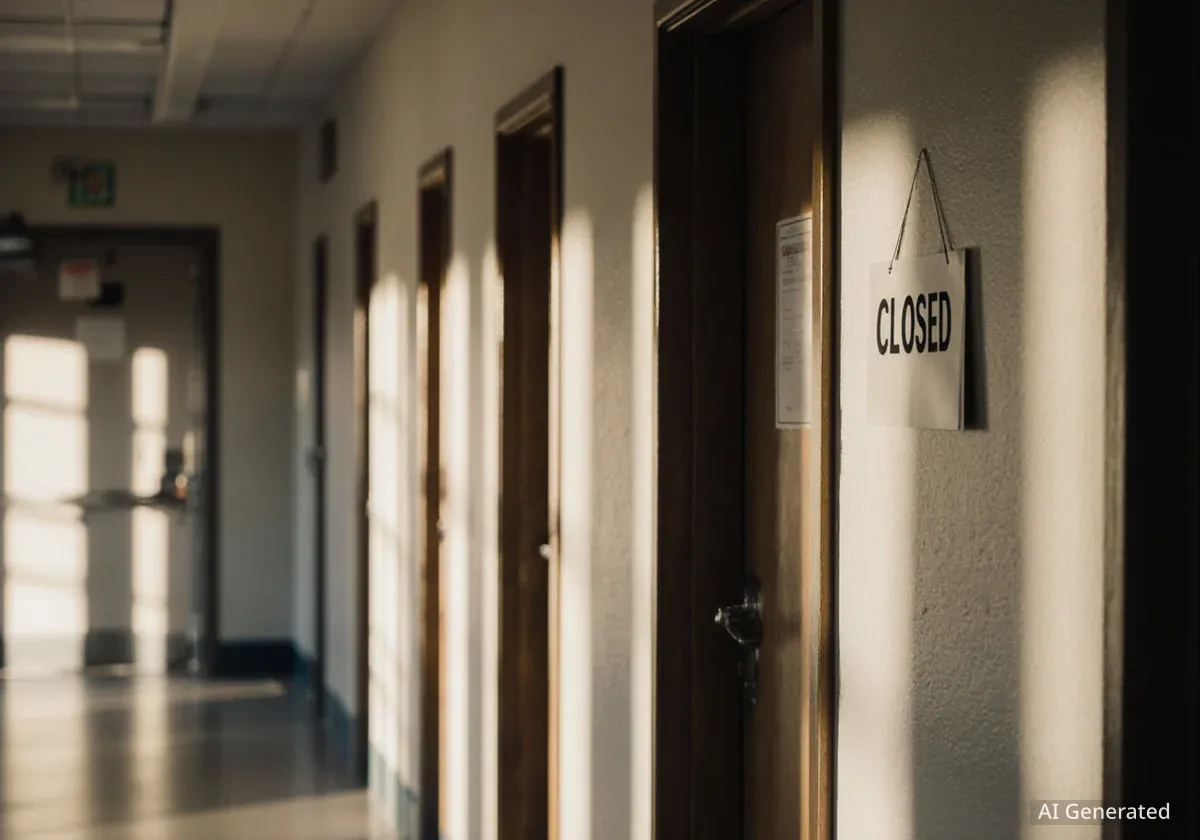The University of Michigan has announced it will not take disciplinary action against faculty members who made offensive social media comments following the death of conservative influencer Charlie Kirk. Citing the importance of free speech, the university will instead invest $50 million to establish a new center focused on civil discourse.
Interim President Domenico Grasso confirmed the decision during a Board of Regents meeting on Thursday, stating that while the comments were contrary to the university's values, protecting free expression is a fundamental principle for the institution and the nation.
Key Takeaways
- The University of Michigan will not fire or discipline faculty for controversial social media posts regarding Charlie Kirk.
- Interim President Domenico Grasso defended the decision based on the principles of free speech.
- The university will allocate $50 million to accelerate the creation of a center for diversity of thought and civil discourse.
- Grasso acknowledged the faculty's comments did not align with the university's values of respectful discourse.
University Confirms Position on Faculty Speech
At a University of Michigan Board of Regents meeting on Thursday, September 19, 2025, Interim President Domenico Grasso addressed the controversy surrounding several faculty members. The faculty were accused of posting offensive and cruel comments on social media platforms after the killing of conservative figure Charlie Kirk.
Grasso announced that no disciplinary action, including termination, would be taken against the individuals involved. He framed the decision as a necessary defense of academic freedom and free expression, even when the content is disagreeable.
"Silencing voices is anathema to a great university like ours," Grasso stated during the public meeting. "If we abandon free speech on our campuses, we risk abandoning it for our nation."
This statement sets a clear precedent for how the administration intends to handle future cases involving contentious speech from its faculty, emphasizing constitutional principles over punitive measures for expressed viewpoints.
The Role of Free Speech on Campus
Public universities like the University of Michigan are bound by the First Amendment, which generally protects the speech of public employees, including faculty. However, this protection is not absolute and is often balanced against the university's interest in maintaining an orderly and effective educational environment. The university's decision highlights the ongoing national debate over the limits of free speech in academic settings.
Acknowledging a 'Missed Teaching Moment'
While defending the faculty's right to express their views, President Grasso did not endorse the content of their posts. He stated that the comments did not reflect the values of the University of Michigan and criticized the faculty for failing to engage in respectful and civil discourse.
According to Grasso, the professors involved missed a significant "teaching moment." He suggested that instead of making cruel remarks, they could have used the opportunity to foster a constructive dialogue about differing political and social viewpoints. This part of his address served to separate the university's institutional values from the personal opinions expressed by its employees.
Faculty Speech and University Values
The American Association of University Professors (AAUP) states that when faculty members speak or write as citizens, they should be free from institutional censorship or discipline. However, it also advises that their special position in the community imposes special obligations, and they should remember that the public may judge their profession and their institution by their utterances.
A $50 Million Investment in Civil Discourse
As a direct response to the incident, the university announced a major new initiative. Grasso revealed that $50 million will be invested to accelerate the development of a dedicated center for diversity of thought and civil discourse.
This move signals the university's strategy for addressing controversial speech: not by punishing it, but by actively promoting more constructive and respectful forms of dialogue. The center is intended to be a hub for programming, research, and teaching aimed at bridging ideological divides on campus and beyond.
Goals of the New Center
The primary objectives for the new center will likely include:
- Hosting debates and forums with speakers from diverse political backgrounds.
- Developing curriculum and workshops for students on civil discourse and critical thinking.
- Supporting research into political polarization and methods for fostering mutual understanding.
- Creating a campus environment where difficult conversations can occur without descending into hostility.
This substantial financial commitment underscores the administration's view that education and dialogue, rather than censorship, are the most effective tools for navigating a politically polarized society. The project aims to turn a moment of controversy into a long-term institutional asset for fostering intellectual diversity.





